
21 Countries With No Income Tax
Introduction
Taxes are on everyone’s mind. Imagine this scenario: you spend a couple of years struggling financially. Then you put your head down, work hard, come up with a few business ideas, and start making some money.
Debts start to melt away, you finally upgrade that old car, and things are looking up. Then who’s that at the door? Tax collectors. You feel cheated. You put all that hard work in to lose a decent chunk of it to taxes. Of course, you can’t just ignore them. Otherwise, you’ll be a tax evader. So what to do?
Well, I’m here to introduce you to a few countries with no income tax. This way, you can continue on with your business and legally reduce your taxes. In this article, I’ll be discussing various topics related to taxes, such as: How a country might eliminate its income tax? What is the difference between no taxes and low taxes? Additionally, I’ll be listing a few countries with no income tax.
What Is The Difference Between Low Taxes and No Taxes?
Countries with zero income taxes have a simple tax system where you simply don’t pay any income tax. The reason why tax-free countries aren’t so popular is that there are only a handful of countries in the world that have that system. Plus, some tax-free countries, like Somalia, for example, tend not to be super “livable.”
This is why most investors prefer to find a low-tax country rather than a tax-free country. These are usually countries where they only tax local sources of income. A good example of this is Greece.
Those who hold a Golden Visa in Greece can benefit from the DTA (Double Taxation Agreement.) This allows the investor to pay taxes only on the income they receive in Greece and not on any foreign investments.
So basically, in countries with no income tax, you’re just exempt from all taxes. In low-tax countries, you can virtually live tax-free, but you need some planning.
How Does a Country Function With No Income Tax?
When I discuss no income tax countries with friends or clients, they’re often shocked. Especially residents of the United States, where the income tax is quite high. “How does the government make any money then?” they ask.
Well, there are many other revenues to bring income. For example, think of an oil-rich country like Qatar. The revenue that Qatar earns from oil and natural gas is massive. This eliminates the need for income tax.
This even works in some states in the U.S. Nevada, for example, has no state-level income tax. How is that possible? The answer is simple, Las Vegas! Las Vegas generates a huge tourism income. This means that they can make enough money to support infrastructure without imposing income taxes.
The list goes on and on, usually thought it’s either natural resources or tourism. Think of somewhere like Monaco, the Cayman Islands, or Vanuatu. They rely on tourism. Then look at Oman or the UAE. They rely on oil. This is how some countries can survive, and even thrive, with zero income tax.
Countries With No Income Tax
There are 21 countries without income taxes. Accessing some of those countries, or getting a residence permit there, might be much harder than others. However, I’ll go through all of them and introduce them briefly. Additionally, if there’s a way to gain residence or citizenship there, I’ll list those as well.
Bahrain
Bahrain used to be a British protectorate. It’s also one of the first Gulf countries to discover it’s oil and gas reserves in the region. This is why it’s an extremely wealthy country and has no income tax. Not many people in the world would think of Gulf countries as tax havens. However, in that region, there are many countries without income taxes, as you’ll see later in this article.
Bahrain’s budget revenue consists mainly of oil and natural resources. About 85% of the country’s revenue comes through these. However, there’s also a vibrant hospitality and retail sector there.
Unfortunately, it is well known that Bahrain is not a stranger to political unrest. There are often protests, and it can get a bit uncomfortable at times. So I’d be careful and do some reading up before moving there.
Residence Permits and Citizenship in Bahrain
To obtain permanent residence in Bahrain, you need to invest $135,000 in real estate or $270,000 in a business there. You also need to have a minimum monthly income of $1,400 and have a deposit of $40,000.
Getting citizenship, however, is next to impossible. You are required to be fluent in Arabic and reside in Bahrain for at least 25 consecutive years.
Bermuda
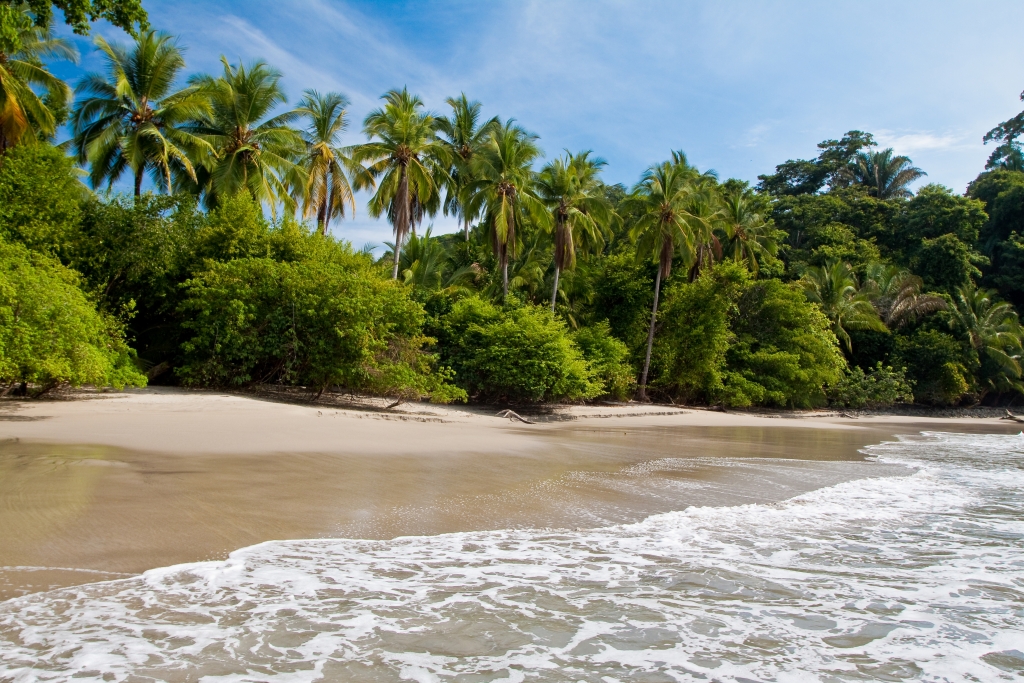
Bermuda is one of the British Overseas Territories. Quite a few of them are known as “tax havens” and don’t have an income tax. Bermuda is one of the oldest territories and the most populous.
You’d think that most of the country’s GDP comes from tourism, but that’s not necessarily true. While a large share of employment is in the tourism sector, about 85% of the GDP comes from the insurance and financial services sector. Meaning foreign banks and businesses.
Residence Permits and Citizenship in Bermuda
You may get Bermudian Status if you’re married to a local and live there for ten years. You may also receive a Permanent Resident’s Certificate, but it’s a bit complicated. You must:
- Be 18 years of age
- Have been living in Bermuda legally for ten continuous years immediately preceding the date of the application
- Have a qualifying Bermudian connection
- Be of good conduct and character
The British Virgin Islands
The British Virgin Islands is a “Caribbean islands country”. Many countries in the Caribbean are known as “tax havens” and have zero income tax. About 45% of the national income in this country comes from tourism. There’s also a large agricultural activity, though it’s mostly reliant on livestock. This is because the quality of the soil is poor and limits crop growth.
Since 1959, the British Virgin Islands has used the U.S dollar as its official currency. This is because its economy is closely tied to its American counterpart, the U.S Virgin Islands.
Residence Permits and Citizenship In The British Virgin Islands
Becoming a permanent resident in this country is a bit complicated. You need to live in the Islands for 20 years. Then you need to submit a residence form to the government of the British islands. You also have to prove that you’re financially capable and that you plan to live there permanently.
Brunei
Brunei is a very interesting place, as it is a sultanate. It is actually rich enough in oil and has various gas fields. This is why it is a zero tax country. The government even provides its residents with a lot of social services. These include free medical services and free education through the university level.
On the other hand, Brunei is not an ideal place to live. The royal family of Brunei (The House of Bolkiah) has been in power there for more than six centuries and It’s not very friendly to expats. It also has a large number of strict rules and prohibitions.
Residence Permits and Citizenship in Brunei
Forget about citizenship there altogether. Even a residence permit can be really hard to acquire. You need to pass tests on local cultures, customs, and language. Plus, you need approval from the Sultan himself.
The Cayman Islands
The Cayman islands derive about 70% of their GDP through tourism. It’s also one of the British Overseas Territories with zero tax on its residents. Standards of living in the Cayman Islands tend to be very high, with some residents comparing them to those of Switzerland. Keep in mind that while the Cayman Islands are “tax-free” they do impose import duties on goods coming into the country.
Moreover, the Cayman Islands are quite famous as a prominent offshore financial Center. Many foreign investors choose to set up their business there.
Residence Permits and Citizenship in The Cayman Islands
Gaining a permanent resident in the Cayman Islands is a bit tricky. In order to live long term in Grand Cayman, you need to be making at least $145,000 annually. Additionally, you need to invest a minimum of $600,000 in real estate or a local business. After that, you need to live there for eight years to get your permanent residence.
Kuwait
Kuwait is another Gulf country that relies heavily on oil. Petroleum accounts for about 92% of its GDP. This is why Kuwait can comfortably afford not to impose an income tax on its citizens. It is well known in the world as a very rich country. As a matter of fact, one Kuwaiti dinar has been worth at least 3.20 over the past ten years.
Kuwait City has many foreign residents living in it. It also tends to be fairly Americanized and easy to live in.
Residence Permits and Citizenship in Kuwait
It’s quite challenging to get permanent residency in Kuwait. You’re required to have formal full-time employment in the country, or have Kuwaiti relatives, to obtain residency there.
Maldives
The Maldives is one of those idyllic island nations in the Indian Ocean. The country is littered with luxurious resorts and thus makes most of its money through tourism.
While it is on the list of countries with no income tax, there are some concerns surrounding this island. About 80% of the island is less than one meter above sea level. This sparks some concerns related to global warming and rising sea levels.
Residence Permits and Citizenship in the Maldives
While it’s pretty easy to visit one of the resorts for a holiday, it tends to be difficult to have permanent residency in the Maldives. You’ll need a work permit there that can be obtained via a local resident or business. This is called “The Sponsorship Program.”
Monaco
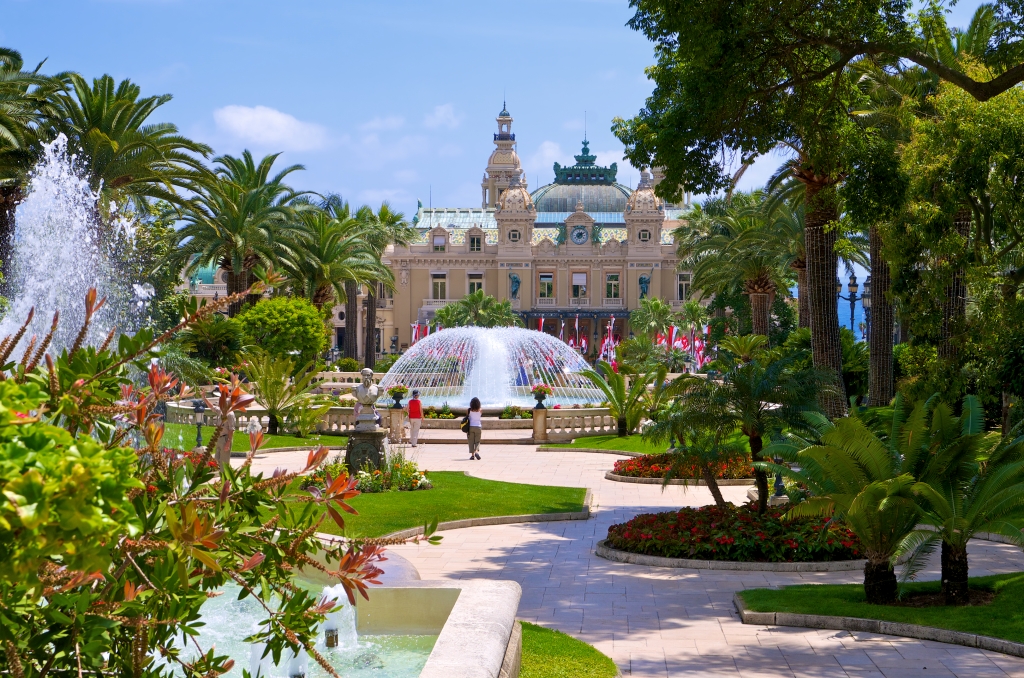
Monaco is a picturesque country on the French Riviera. It has long attracted tourists and is considered a major banking center. Many investors look at Monaco to establish a high-end business. This gorgeous country is fairly developed, safe, and luxurious, yet its residents pay no income tax.
Residence Permits and Citizenship in Monaco
It’s easy but costly to get a residence permit in Monaco. You need to own or rent a house or an apartment. You also need to have a Monegasque bank account, which is easy to get. However, this account requires an initial deposit of €500,000 to €1 million.
Nauru
Nauru is an island nation in Micronesia. It actually used to be on the list of wealthy countries thanks to its phosphate resources. However, the country recently lost all of its resources, and the economy has collapsed dramatically.
Moreover, it’s infamous for that Australian detention camp for asylum seekers, which gave it a very bad reputation.
Residence Permits and Citizenship in Nauru
There’s very little information about anyone moving to Nauru. The government did have an Economic Citizenship Program, but now that information is no longer available anywhere.
Norfolk Island
Norfolk Island is an Australian external territory. It’s interesting in the fact that it imports very little from the outside world. Instead, it’s quite self-sufficient, producing its own poultry, beef, and eggs.
It’s actually a failed British penal colony. Which was later resettled by descendants of mutineers from the HMS Bounty.
Residence Permits and Citizenship in Norfolk Island
If you’re an Australian or New Zealand citizen, you can easily reside in the country. However, it’s much more difficult for foreign nationals to gain residence there. You’ll need to submit legions of forms, documents, and statements. Even then, there’s no guarantee.
Oman
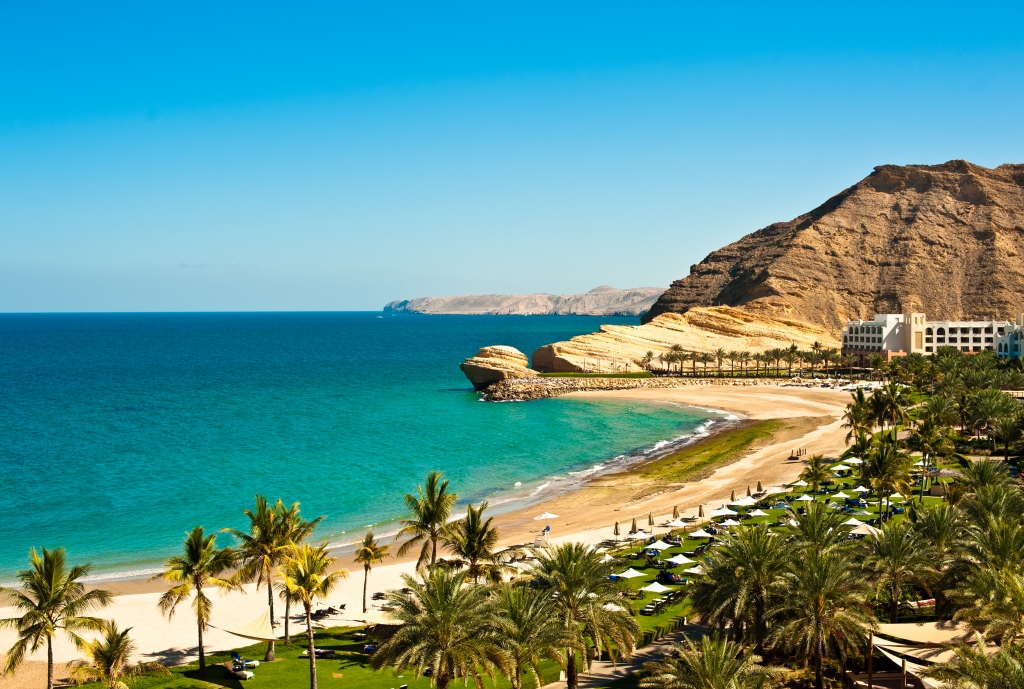
Oman is another Middle Eastern country relying heavily on oil and gas. About 60-80% of the government’s revenue comes from natural resources. This is why Omani’s are not required to pay any income tax.
Oman tends to be quite conservative. As a matter of fact, you need to get a “Personal Liquor Licence” from a police station to buy alcohol there. Otherwise, you might be jailed.
Residence Permits and Citizenship in Oman
You’ll usually need a recommendation from an Omani citizen to be able to move there. Alternatively, you can acquire work through a local business and get a work permit. The Omani government isn’t too keen on handing out citizenship though, so it might be very difficult to obtain one.
Pitcairn
Pitcairn is the most remote and one of the smallest countries in the world. This is another island that was settled by HMS Bounty mutineers. The coolest thing about this island is that it’s only home to 50 residents.
This British Overseas Territory’s economy is mainly made up of fishing, farming, handicrafts, and postage stamps.
Residence Permits and Citizenship in Pitcairn
It’s actually quite easy to immigrate to Pitcairn. You need to fill out a settlement application form, pay a fee, and then be interviewed by the island’s Deputy Governor. However, you might have to wait for the freight to go there, as it only comes four times a year.
Qatar
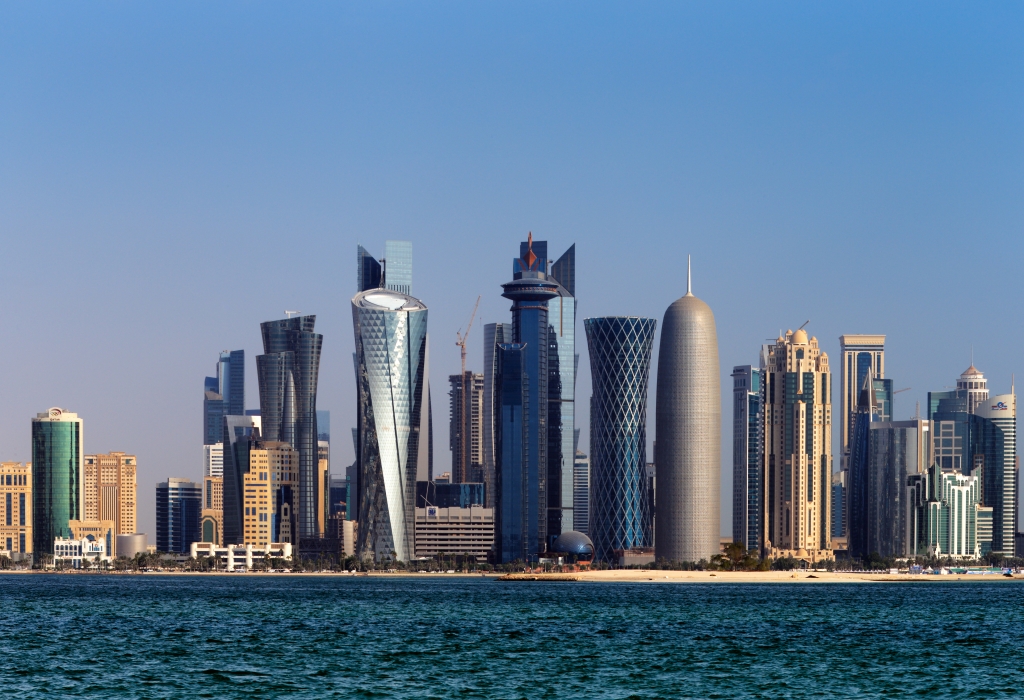
Qatar is yet another country in the Gulf that lucked out with natural resources. It has the highest income per capita worldwide and is extremely wealthy.
Now, Qatar might seem like just another standard conservative country in the Middle East. However, due to a lot of interest from foreign investors and remarkable growth in the business industry, the country is becoming more global.
Residence Permits and Citizenship in Qatar
If you want to live and work in Qatar, you must already have a job at a local business there. You also need to get a police clearance from your country of origin.
Qatar replaced visa requirements for about 80 countries back in 2017. The visitors can now arrive without a visa and stay for either 30 or 90 days.
As for getting a permanent residence, you need to reside there for 20 years and have sufficient knowledge of Arabic.
Saint Barthélemy
Saint Barthélemy was traded between France and Sweden from 1648 until 1877. It became a French overseas collectivity in 2007. Most of this tiny country’s income comes from tourism.
Saint Barthélemy is infamous for the high cost of living. So while it is on the list of tax-free countries, living there is not very easy.
Residence Permits and Citizenship in Saint Barthélemy
In 2012, Saint Barthélemy became an EU overseas territory. This means that immigrating and residing there is quite similar to those rules of the EU. Usually, you’ll have to apply through France for a residence permit, which requires you to already have employment there.
Saint Kitts and Nevis
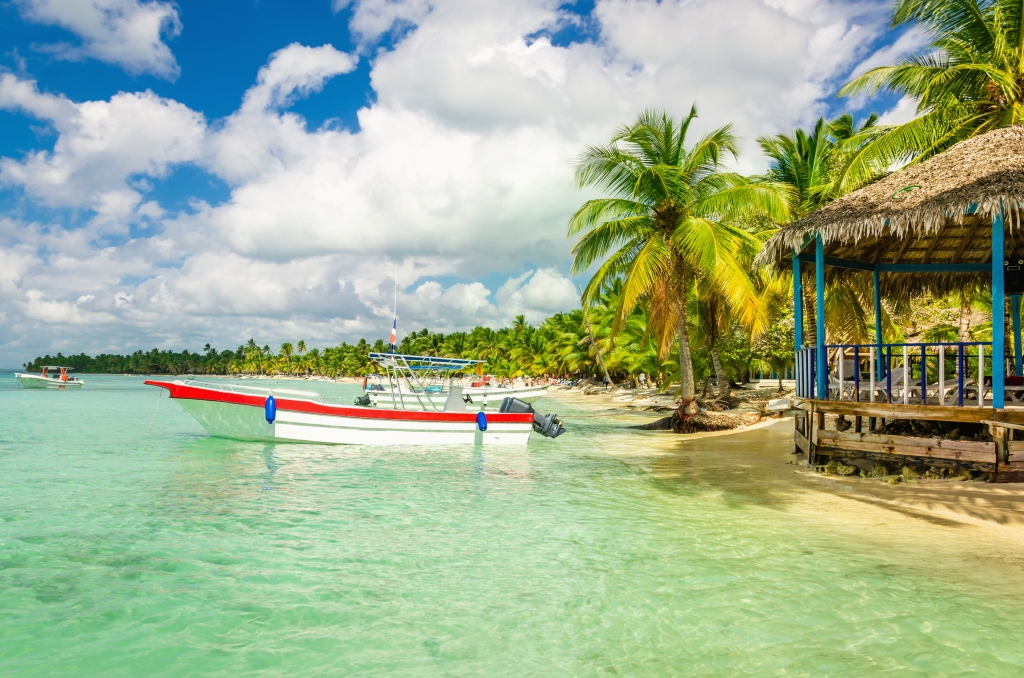
Saint Kitts and Nevis is a magnificent country boasting some most pristine beaches in the world. The country relies mostly on tourism for its income. It has been long known as a tax haven and has no income tax on its residents.
Saint Kitts and Nevis is quite well known for its fantastic climate and being extremely welcoming to expats.
Residence Permits and Citizenship in St.Kitts and Nevis
It’s actually pretty easy to gain citizenship and permanent residence in St.Kitts and Nevis. After a horrific hurricane in 2017, the country established a hurricane relief fund. Any investor who is willing to donate $150,000 to the Hurricane Relief Fund will be awarded citizenship there.
Somalia
Somalia has descended into chaos since 1991. After the collapse of Siad Barre’s authoritarian regime, many factions have been in constant fighting over territorial disputes. The main reason that Somalia doesn’t have any income tax is that it basically doesn’t have a government.
The Bahamas
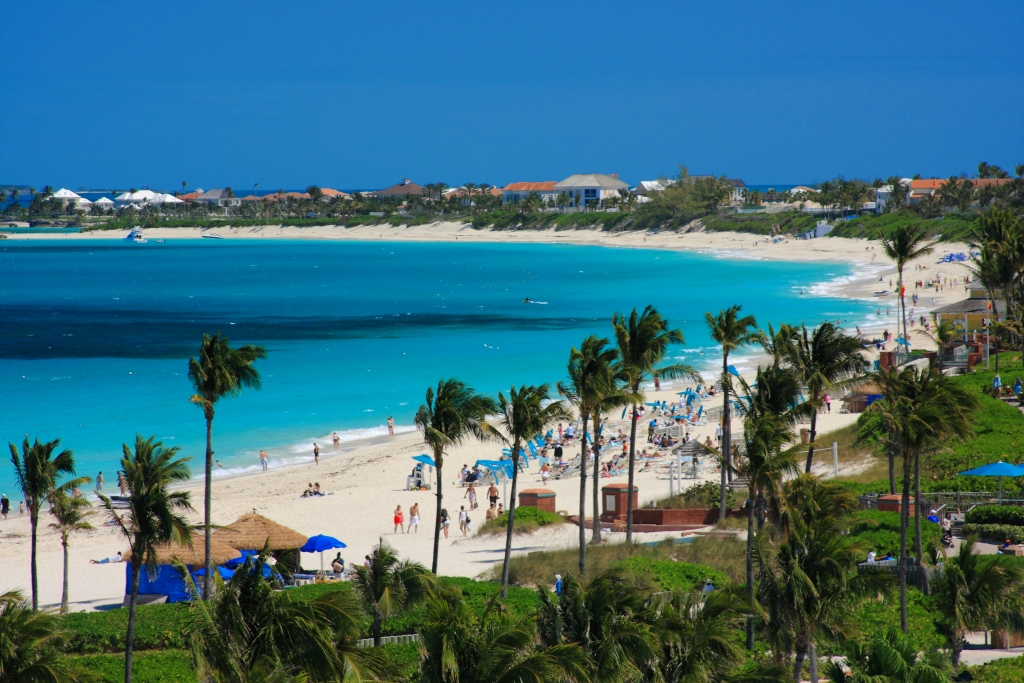
The tourism sector in the Bahamas is extremely vibrant, accounting for over 50% of the country’s GDP. The Bahamas also depends on its financial services sector for a big chunk of its income. This sector accounts for about 15% of its GDP.
Moreover, The Bahamas is actually the only country in the Western Hemisphere that is not a part of the World Trade Organization.
Residence Permits and Citizenship in the Bahamas
You can be eligible for permanent residence in the Bahamas if you purchase a residential property of at least $500,000. After that, you need to live in the country for ten years if you wish to apply for citizenship. This period is reduced to seven years if you’re married to a Bahamian citizen.
The United Arab Emirates
Much like its counterparts in the Gulf, the United Arab Emirates had for long derived most of its income from oil and gas. This is why it has no income tax. Unlike its counterparts, however, the UAE has developed its industries and services sector. They actually account for more than 50% of the country’s GDP.
Moreover, the Emarati government encourages foreign investors, and Dubai is known as a modern and multicultural city.
Residence Permits and Citizenship in the UAE
The government has introduced a sponsorship program called “kafala.” Under this program, any foreign national can become a resident, live, and work there as long as they are sponsored by a citizen or business.
Turks and Caicos Islands
The Turks and Caicos Islands are one of the British Overseas Territories that is tax-free. The economy there is mainly made up of tourism, financial services, and fishing.
The Turks and Caicos also have a very vibrant service sector.
Residence Permits and Citizenship in the Turks and Caicos Islands
Getting a residence permit there is not very easy. They require individuals to be of “independent means.” This means that you should be able to rent or own a house there. Additionally, you have to invest $500,000 in the country.
Another way to become a resident there is to be married to a local.
Vanuatu
Vanuatu is another island, much like any on this list. However, it is unique in its economy. About a fourth of Vanuatu’s GDP comes from agriculture. Approximately two-thirds of the population is employed in agriculture.
Tourism, offshore financial service, and fishing are still major industries. But, in 2015, Cyclone Pam hit various countries in the south pacific ocean. It affected Vanuatu strongly and destroyed much of the infrastructure. Since then, the government has been trying to rebuild the economy.
Residence Permits and Citizenship in Vanuatu
It’s fairly easy to obtain citizenship in Vanuatu thanks to its citizenship by investment program. All you need to do is make a donation of $135,000 to the Vanuatu Development Support Program, pay about $10,000 in fees, and you’ll be eligible.
Western Sahara
Western Sahara is not exactly on the list of countries you want to visit for the weekend. It’s more of a non-self-governing entity with a lot of disputed grounds. Its economy is mostly market-based, with phosphate mining as the main industry.
Even though it’s not exactly an established country, it is recognized by various governments.
Conclusion
Sometimes taxes can be overwhelming. There are many places around the world that offer no income tax to their residents. However, not many of them are easily accessible or highly livable. It could be a smart idea for you to go somewhere that is tax-free. However, I suggest that you do some research so you can get the best out of your move.
